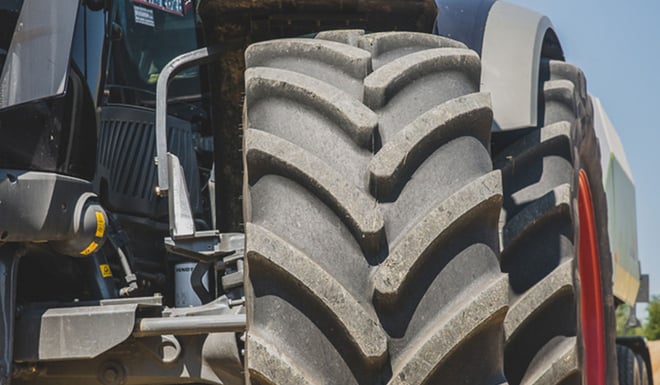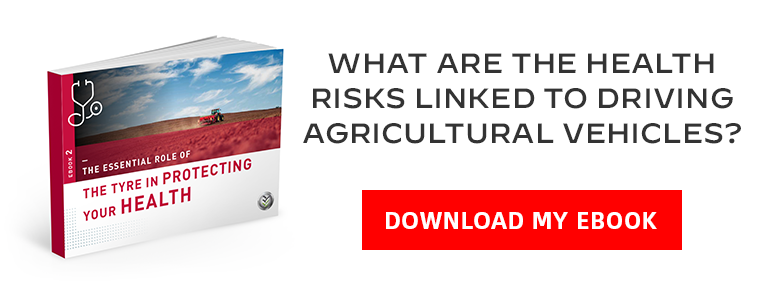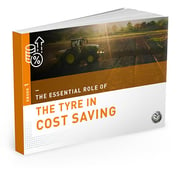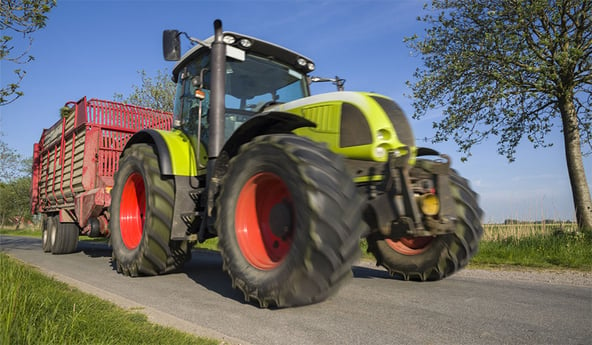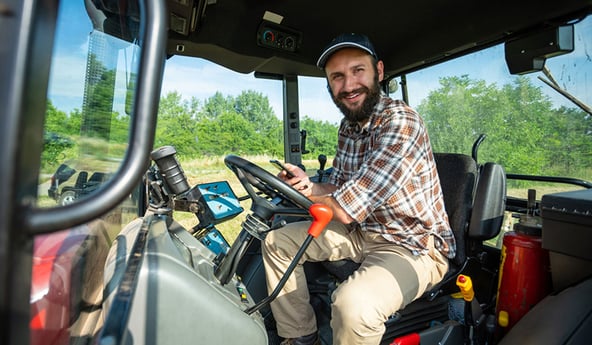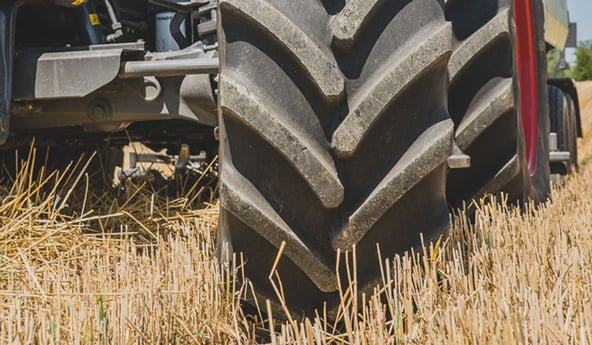The agricultural equipment sector is committed to seeking perpetual innovations to offer its clients equipment which complies with standards and offers comfort and safety.
Suspended front axle and cab, braking system with yaw control, electronic stability programmes are all part of the equipment and devices available to help limit vibrations and loss of ground/tyre contact.
Don’t forget that the quality of the tyre is an indispensable element in limiting risks affecting the health and safety of the farmer.
Designing tyres for better shock absorption
The best way to absorb shocks is to adopt the lowest possible tyre pressure (in line with manufacturer standards). This last precaution is particularly important when using a tractor without front axle or cab suspension: the tyre pressure is the only element of suspension apart from the seat which provides user comfort. When the pressure in the tyre is low, the tyre contact with the ground expands upon impact allowing for better shock absorption.
To increase this ground/tyre contact surface, research on tyre components and profiles tends towards extending the tyre soil footprint.
The tyre casing is made of a mixture of materials which provide flexibility and resistance in order to absorb shocks and decrease the risk of vibrations, even at high speed. The tensile strength of ply casing together with the pressure exerted by the trapped air make it possible to suspend the load. A shock can be modelled as an increase at a given time “t” of the mass exerted on the tyre.
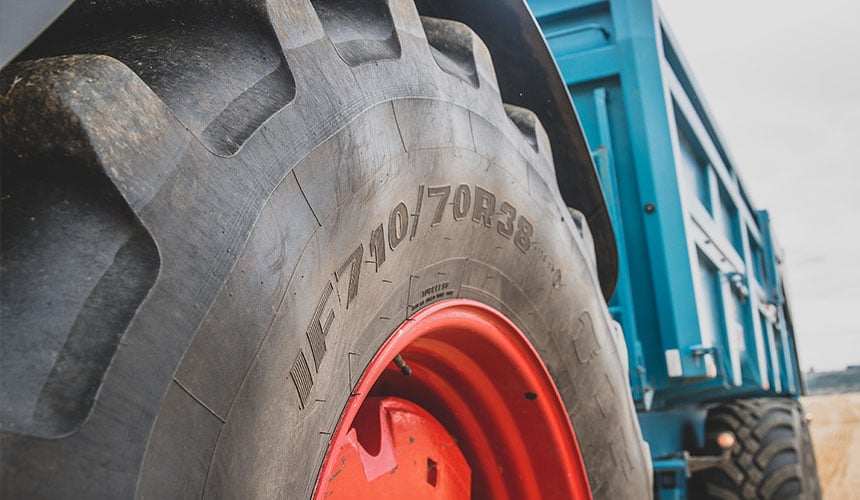
With tyres with a large footprint, when the mass increases the distribution of the air in the tyre is over a larger surface area and the contact area with the ground expands. This leads to better shock absorption.
If you would like to find out more about this revolutionary technique which has an impact on the farmer’s health and safety, download this free white paper:
Most people who read this article have also read some of the following articles:
This information is intended only to make you aware of the technical and functional aspects of agricultural tires and their use. It does not allow you to make a judgment or a definitive conclusion on a given problem. Only your agricultural tire expert is able to make a technical assessment and take a final decision, case by case.
Leave a
commentary
Your email address will not be published.
Required fields are indicated with *


